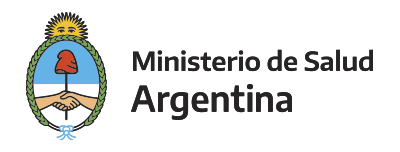Use este identificador para citar ou linkar para este item:
http://sgc.anlis.gob.ar/handle/123456789/1743| Título: | Rapid Diagnostic Tests for Trypanosoma cruzi Infection: Field Evaluation of Two Registered Kits in a Region of Endemicity and a Region of Nonendemicity in Argentina | Autor(es): | Lopez-Albízu, Constanza Danesi, Emmaria Piorno, Pablo Fernandez, Mariana García Campos, Francisco Scollo, Karenina Crudo, Favio |
Palavras-chave: | Serología;Enfermedad de Chagas;Trypanosoma cruzi;Enfermedades Transmisibles;Parasitología | Data do documento: | 18-Nov-2020 | Editora: | Springer | Jornal: | Journal of clinical microbiology | Resumo: | Infection by Trypanosoma cruzi (Chagas disease [ChD]) affects around 7 million people in the Americas, most of whom are unaware of their status due to lack of clinical manifestations and poor access to diagnosis. Rapid diagnostic tests (RDTs) are widely used for screening for different infections (HIV, hepatitis B, and syphilis), and their application for ChD would facilitate access to diagnosis, especially in remote areas where health services have scarce resources. We conducted a prospective intervention study in 2018 to evaluate in the field two in vitro RDTs for ChD, authorized by the National Administration of Medicaments, Aliments, and Medical Technologies of Argentina (ANMAT), in areas of endemicity and nonendemicity in Argentina. We recruited 607 volunteers older than 18 years in Salta province and the city of Buenos Aires. The RDTs Ab Standard Diagnostics SD Bioline (SD) and Check Chagas Wiener Lab (WL) were performed in situ with whole-blood samples, and confirmatory serology was done at a reference center. The rate of infection with T. cruzi was 17.8% (108/607). The SD test showed 97.2% sensitivity (95% confidence interval [CI], 93.5 to 100) and 91.7% specificity (95% CI, 96.2 to 99.2%), and the WL test showed 93.4% sensitivity (95% CI, 88.2 to 98.6%) and 99.1% specificity (95% CI, 91.9 to 100%). The sensitivity and specificity for the two RDTs tested were higher than previously reported. These results encourage the use of the tested RDTs in Salta province and for further field studies for the implementation of these RDTs in other epidemiological scenarios. This will be very important to improve access to diagnosis of Chagas and its clinical management as a neglected disease, especially in remote areas with health access barriers. |
Descrição: | Fil: Lopez-Albizu, Constanza. ANLIS Dr.C.G.Malbrán. Instituto Nacional de Parasitología; Argentina. Fil: Danesi, Emmaría. ANLIS Dr.C.G.Malbrán. Centro Nacional de Diagnóstico e Investigación de Endemo-Epidemias; Argentina Fil: Piorno, Pablo. Asociación para Desarrollo Sanitario Regional (ADESAR); Argentina. Fil: Fernandez, Mariana. Asociación para Desarrollo Sanitario Regional (ADESAR); Argentina. Fil: García Campos, Francisco. Ministerio de Salud Pública de Salta; Argentina. Fil: Scollo, Karenina. ANLIS Dr.C.G.Malbrán. Instituto Nacional de Parasitología; Argentina. Fil: Crudo, Favio. Asociación para Desarrollo Sanitario Regional (ADESAR); Argentina. |
URI: | http://sgc.anlis.gob.ar/handle/123456789/1743 | ISSN: | 1435-4373 | DOI: | 10.1128/JCM.01140-20 | Direitos: | Open Access Creative Commons Attribution 4.0 International License |
| Aparece nas Coleções: | Publicaciones INP |
Arquivos neste item:
| Arquivo | Descrição | Tamanho | Formato | |
|---|---|---|---|---|
| 10.1128_JCM.01140-20.pdf | Artículo en inglés | 800.32 kB | Adobe PDF | Ver/Aberto |
Visualização de página
196
Checado em 20/02/2026
Download(s)
20
Checado em 20/02/2026
Google ScholarTM
Checar
Altmetric
Altmetric
Este item está licenciada sob uma Licença Creative Commons


